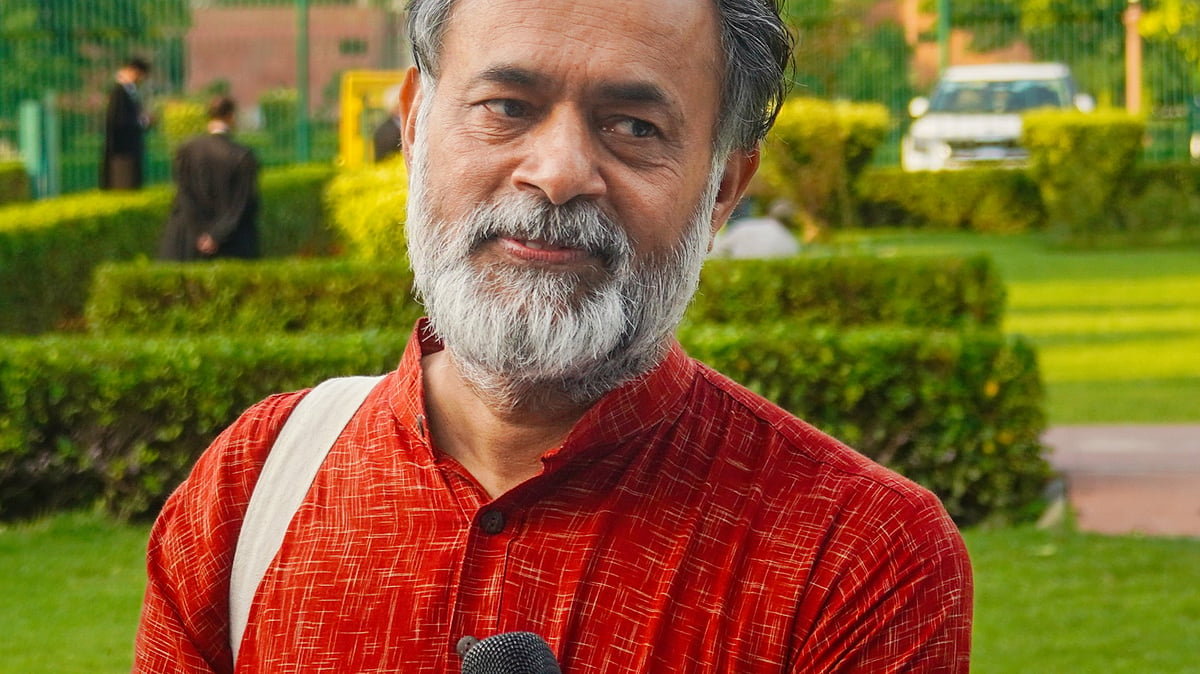POLITICS
The ECI's ‘three big lies’ about 2003 Bihar voter roll revision
Yogendra Yadav’s video expose of the ECI’s claims about the Bihar SIR

Hours after the Reporters’ Collective reported on Sunday, 12 October that the Election Commission of India (ECI) had inexplicably failed to use the software de-duplication application during the special intensive revision (SIR) exercise in Bihar between June and September, Yogendra Yadav in a new video statement produced the ‘Final Guideline’ issued by the ECI for the intensive revision of electoral rolls conducted in Bihar in 2003.
The Commission had earlier refused to part with details about the exercise of 22 years ago. It had denied information under the RTI and when journalists asked for the guidelines, they were told that the 2003 guidelines, which were in printed form and not an electronic soft copy, had been misplaced.
That did not stop the ECI from claiming before the Supreme Court, where the next hearing on SIR is due on 16 October, that the SIR is not a new exercise but is similar to the 2003 exercise. Today, Yadav produced a copy of the guideline, which exposed what he called "the three big lies" that the ECI had claimed about the revision exercise in 2003.
The first claim that the ECI made was that in 2003, too, an enumeration was done and electors had filled enumeration forms. The guideline, however, confirms that no enumeration form was filled by electors in 2003, and no deadline was given to them either.
Published: undefined
Yadav says enumerators, described as Booth Level Officers (BLOs) in 2025, were asked to go from door to door in 2003, physically verify details in the electoral roll, make corrections, and obtain the signature of the head of the household.
The second claim made by the ECI was that in 2003, only four documents were sought from voters but in 2025, this had expanded to 11, excluding Aadhaar cards. The guidelines now reveal that in 2003, no document was required from electors at large. The guidelines do, however, clarify that documents were demanded from only those electors whose names and addresses appeared to be dubious or wrong.
Finally, the ECI has claimed that the intensive revision in 2003, too, had determined citizenship, which is why those whose names were part of the rolls in 2003 are not required to establish their citizenship this time. The guidelines reveal that in 2003, the exercise was not meant to determine citizenship. In fact, para 32 of the document expressly states that it was not the job of the enumerators to determine citizenship.
In 2003, proof of citizenship was required from only those ‘electors’ whose citizenship was questioned by the Government of India, or in areas and constituencies where there was a sudden influx of ‘new’ settlers or those whose citizenship were questioned by other voters in the same polling centre/constituency.
It remains to be seen how the Election Commission now explains its ‘three lies’ or half-truths.
Published: undefined
Follow us on: Facebook, Twitter, Google News, Instagram
Join our official telegram channel (@nationalherald) and stay updated with the latest headlines
Published: undefined